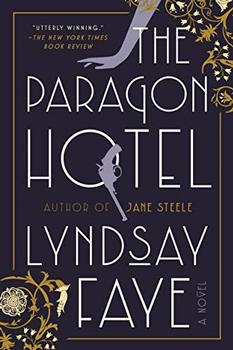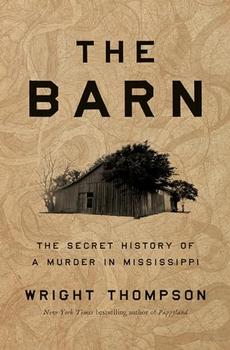Summary | Excerpt | Reading Guide | Reviews | Beyond the Book | Read-Alikes | Genres & Themes | Author Bio

This article relates to The Paragon Hotel
 One of the central characters in Lyndsay Faye's The Paragon Hotel is a Black Pullman train porter who had served in the United States Army in World War I. Not unlike most veterans today, he was rightfully proud of both his rank and service to the country. Regretfully, his postwar country was not as proud of his service – or that of any Black man that served.
One of the central characters in Lyndsay Faye's The Paragon Hotel is a Black Pullman train porter who had served in the United States Army in World War I. Not unlike most veterans today, he was rightfully proud of both his rank and service to the country. Regretfully, his postwar country was not as proud of his service – or that of any Black man that served.
Barely two generations out of slavery and still striving for respect from the general population, Black American men saw an opportunity in April 1917 when the United States entered the war. Here was a chance to serve their country; prove their loyalty, patriotism and worthiness as they fought a common enemy alongside white soldiers. Within weeks of the U.S. entering the war, the War Department had to stop accepting applications from Black applicants, as the existing "colored" regiments had reached capacity. At that time, the army had four Black regiments, two infantry and two cavalry units – remainders of Civil War regiments – whose members were heroes within their African-American communities.
After Congress passed the Selective Service Act in 1917, however, everything changed. Draft boards gave Black men far fewer deferments than their white counterparts. Often the white sons of farmers, factory owners and other businessmen were turned down while Black men were recruited and sent into service under white officers. Systematic bigotry plagued these men. Forced into substandard conditions, many were issued ill-fitting, leftover uniforms, were "bunked" in tents next to warm barracks enjoyed by the white soldiers, were not allowed to mess with their white peers, were denied basic toilet and bathing facilities, and worse.
Their basic training was slipshod due to white officers' bigotry, yet these Black servicemen were labeled as lazy or unwilling to put effort into their work. Eventually, the army was forced to offer better training via officers' training school wherein many earned commissions and were sent with their men to the front. By all accounts Black Americans served their country honorably, both as laborers and in combat positions, many returning as decorated heroes. But many more were lost in the dust of history.
Sadly, the post WWI years saw some of the most violent and volatile racism of the century as Black soldiers, accustomed to enjoying the respect of their military peers and less bigoted communities overseas, returned to a country that feared them more then ever. Jim Crow, the Ku Klux Klan, lynchings and segregation would plague them for decades.
Soldiers of the 369th (15th N.Y.) who won the Croix de Guerre for gallantry in action, 1919
Filed under People, Eras & Events
![]() This "beyond the book article" relates to The Paragon Hotel. It originally ran in February 2019 and has been updated for the
December 2019 paperback edition.
Go to magazine.
This "beyond the book article" relates to The Paragon Hotel. It originally ran in February 2019 and has been updated for the
December 2019 paperback edition.
Go to magazine.




From the moment I picked your book up...
Click Here to find out who said this, as well as discovering other famous literary quotes!
Your guide toexceptional books
BookBrowse seeks out and recommends the best in contemporary fiction and nonfiction—books that not only engage and entertain but also deepen our understanding of ourselves and the world around us.